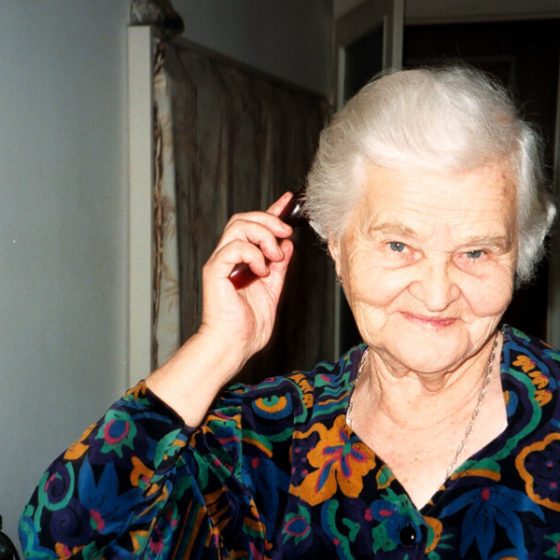The Legacy of Jedwabne
Inspired by Jan Gross’ book titled Neighbors: The Destruction of the Jewish Community in Jedwabne, this film tells a shocking and brutal story that has been kept a secret in Poland for over 60 years. It tells the story of a pogrom in 1941 in Jedwabne, Poland and explores the implications of the past for present constructions and negotiations of personal, national and religious identity. Read more below.
ABOUT FILM
ABOUT FILM - IN POLISH
CREDITS
SCREENINGS AND AWARDS
BROADCAST HISTORY
REVIEWS AND REACTIONS
LECTURES
FILM POSTER
ABOUT FILM
Special Prize for “An intelligent treatment of an important national issue” at Crossroads of Europe Festival in Lublin
The larger message that this film conveys is the perennial need to remain vigilant against ethnic and religious intolerance. A sobering, often unsettling piece of work, this is recommended.
Video Librarian
Inspired by Jan Gross’ book titled Neighbors: The Destruction of the Jewish Community in Jedwabne, this film tells a shocking and brutal story that has been kept a secret in Poland for over 60 years. It tells the story of a pogrom in 1941 in Jedwabne, Poland and explores the implications of the past for present constructions and negotiations of personal, national and religious identity.
In the small town of Jedwabne in Northeast Poland, Jews lived side by side with local Poles for over two centuries; by the outbreak of the Second World War, they constituted more than half of the town’s 2,500 inhabitants. Relations were peaceful for the most part until July 10, 1941 when, just days after the Germans occupied Jedwabne, almost the entire Jewish population of the town was murdered. Beginning in the morning, Jews were chased, beaten and killed with clubs, knives and iron bars. Women were raped; a small girl’s head was cut off and kicked about. Jews were rounded up from their homes and brought to the market square where the town rabbi and others were forced to carry the statue of Lenin and to sing, “The war is because of us.” At the end of the day, all remaining Jews were forced into a nearby barn that was then doused with gasoline and set on fire. Music was played to drown out their cries. No Jewish witnesses were meant to survive, but seven managed to escape.
ABOUT FILM - IN POLISH
Przed druga wojna swiatowa, w malej miejscowosci Jedwabne w pólnocnej Polsce, Zydzi i Polacy wspólegzystowali ze soba przez ponad dwiescie lat. Wszystko zmienilo sie w lipcu 1941 roku, kiedy na spolecznosci zydowskiej dokonano przerazajacego mordu. W stodole zywcem spalono setki osób, wsród który znajdowaly sie glównie kobiety i dzieci. Choc minelo juz ponad 60 lat sprawa Jedwabnego wciaz budzi liczne kontrowersje. Przez jednych nazywana jest “czarna karta polskiej historii”, przez innych uwazana jest za kolejny przejaw bestialstwa nazizmu. W filmie glos zabieraja przedstawiciele róznorodnych srodowisk, którzy wciaz próbuja rozwiklac tajemnice z przeszlosci. Kamera zabiera widza w podróz do Polski, Stanów Zjednoczonych i Argentyny, gdzie odnajdujemy bohaterów filmu, którymi sa zarówno Zydzi ocaleni z pogromu, jak tez Polacy, którzy im pomagali, a niejednokrotnie ratowali zycie.
CREDITS
A Film by:
Slawomir Grunberg
Producer/Director:
Slawomir Grunberg
Editors:
Chris DeCicco, William C. Doll, Monika Reder & Erika Street
Music:
Gary Lucas
Photography:
Slawomir Grunberg
Associate Producer:
Stephanie Steiker
Production Manager:
Erika Street
Production Assistant:
Lyla Miller
Post Production Assistant:
Tomasz Gniadek
Co-Producer (Poland):
Krzysztof Piotrowski, TV Partner
Special Thanks:
Suzana Amado, Alberto Aronovitz, Anna Bikont, Moira Fradinger, Gary Hochman, Jan T. Gross, Judith Kubran, Laura Klein, Ty Rogers, Vlady Rozenbaum, Linda Sametz, Burt Segelin, Stanlee J. Stahl
SCREENINGS AND AWARDS
SCREENINGS
• Hannukah Festival at the White Stork Synagogue in Wroclaw, Poland, December 2, 2013
• Teatr Rondo, Slupsk, Poland, May 9, 2011
(Discussion with Slawomir Grunberg will follow the film presentation)
• Museum of Memoria y Tolerancia, Mexico City, Mexico, April 3, 2011
• Jewish Community Center Krakow, Poland, June 2-4, 2010
• VII Jewish Film Festival of Punta del Este, Uruguay, February 6-11, 2010
• Jewish Culture Festival, Warsaw of Singer and Kinoteka Polska, September 4, Iluzjon Theater, Warsaw, 2007
• Film and Art Festival “TWO RIVERSIDES”; Festiwal Filmu i Sztuki – Dwa Brzegi, Kazimierz Dolny, Poland, 2007
• Special Prize for ‘an intelligent treatment of an important national issue’ at Rozstaje Europy ‘Crossroads of Europe” The International Days of Documentary Films in Lublin, Poland, 2007
• Festival of Jewish Cinema, Melbourne and Sydney, Australia, 2006
• Jewish Film Festival at Washington DC Jewish Community Center, 2006
• Jewish Film Festival at Sid Jacobson Jewish Community Center, East Hills, NY, 2006
• The Makor Center/92nd Street Y, NYC (additional screenings), 2006
• Finger Lakes Environmental Film Festival, Ithaca, NY, 2006
• Hope and Dreams Film Festival, Hope, NJ, 2006
• Human Rights Film Festival at Oxford Brookes University, UK, 2006
• Human Rights Studies at the Benjamin N. Cardozo School of Law and the World Policy Institute at the New School, NYC; an international conference entitled “Denying Genocide: Law, Identity and Historical Memory in the Face of Mass Atrocity.”, 2006
• Queens College, NY, Center For Jewish Studies – Film/Dialogue series, 2006
• Krakow International Film Festival, Poland, 2005
• Warsaw International Film Festival, “Jewish Motifs”, Poland, 2005
• The Makor Center/92nd Street Y, NYC, 2005
• Era New Horizon Film Festival, Cieszyn, Poland, 2005
BROADCAST HISTORY
• PBS
• Link TV
• Polish Television Network – Channel Kultura
• Planete Poland
• Russian Cable – Channel Nostalgi
• Al Jazeera TV
• Discovery Communications Europe (Poland)
REVIEWS AND REACTIONS
Aftermath and Polish Ghosts
By Annette Insdorf
Huffington Post
October 31, 2013
In the audience was Slawomir Grunberg, the director of an excellent documentary of 2005, The Legacy of Jedwabne. Whereas his film included a Catholic woman who aided Jews (and was honored as a “Righteous Gentile” by Yad Vashem), the JCC event had some heated discussion about the absence of any such noble Pole in Pasikowski’s drama.
Astonished by Polish ‘Aftermath’
By Masha Leon
Forward
October 31, 2013
I caught up with Slawomir Grunberg who was a participant at the JCC event and will be a panel member following the November 11 screening of “Aftermath” at the Jewish Film Festival in Philadelphia. In 2005 he made the documentary film, “The Legacy of Jedwabne” [a town where Jews were massacred in 1941] which he said “dealt with righteous Gentiles — Poles who saved several Jews in Jedwabne but also dealt with the fear of openly acknowledging this fact by those righteous Gentiles in Poland today.”
Other reviews
…the larger message that this film conveys is the perennial need to remain vigilant against ethnic and religious intolerance. A sobering, often unsettling piece of work, this is recommended.
Video Librarian Magazine
June 2006
Emmy-winning director Slawomir Grunberg’s documentary, which screened to sellout crowds at Makor in December 2005 highlights this tragic event and its contemporary resonance.
Makor/Steinhardt Center of the 92nd Street Y
New York City, April 2006
Personal Reviews
…The world badly needs such truth-telling…
… I am thankful there are people in your film who are willing to live with ugly truths rather than beautiful lies….
You have created a program that really captures the universal human dilemma of complex stories like these…
…you made to focus on the “people” connected to the story, rather than the academic and political debates surrounding it….
LECTURES
The Jedwabne Massacre of July 10, 1941 and its Legacy
Stuart Liebman
Delivered at Queens College
Jewish Film Lecture Series
December 3, 2006
In May 2000, a bomb went off in Poland. Fortunately, no one died, although countless thousands, perhaps millions of Poles were hurt. That is because, happily, they were not wounded physically and certainly not irreparably. But the Poles were hurt in ways that paradoxically had even more devastating effect. For the bomb that went off was an explosive charge in the form of a book and it cut far more deeply into the Polish soul, that is, into the self-conception of the Poles as a nation, than any actual bomb explosion could ever do. For the book had an extraordinary power to penetrate thick layers of Polish consciousness formed by decades, perhaps centuries of repression, as well as their national vanity that had so diligently invested in the denial of the bitter truths that the book’s author revealed.
FILM POSTER





